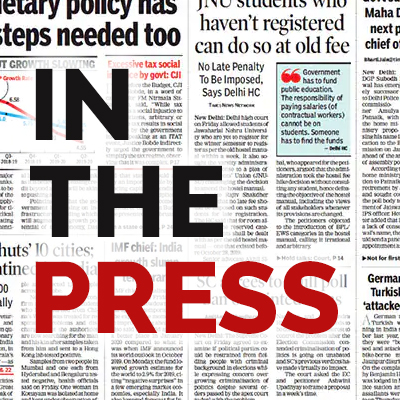Samia Shahid ‘honour killing’: ex-husband and father remain in custody

Remembering the victims of honour killings
July 8, 2016
Samia Shahid ‘honour killing’: British woman was raped before being strangled to death, police say
September 3, 2016Samia Shahid 'honour killing': ex-husband and father remain in custody
Chaudhry Shakeel, ex-husband of Bradford woman, and her father, Mohammad Shahid, face more questions over her death
Jon Boone
Wed 17 Aug 2016 12.23 BST
Police in Pakistan have been given an additional five days to question the two main suspects in the alleged “honour killing” of Samia Shahid, a British woman who had divorced and remarried against the will of her family.
A judge at Jhelum district court ruled Shahid’s ex-husband, Chaudhry Shakeel, and her father, Mohammad Shahid, should remain in custody while police continue with the high-profile investigation.
The two men, who appeared before the Jhelum district magistrates court, were remanded for an initial four days on Saturday over allegations that they conspired to kill the Bradford-born Shahid because she had shamed her family.
Their lawyer, Mian Mohammad Arif, said he anticipated further extensions of the remand period and said the investigation would probably take a month.
Shahid, a 28 year-old described by Bradford friends as a “happy and bubbly” woman, was found dead in the home of her ex-husband on 20 July, less than a week after travelling to Pakistan to visit her parents in Pandori, the family’s ancestral village in Punjab.
The family had made conflicting claims about how she died, including that she had died of a heart attack.
Members of the high-level police inquiry ordered by Punjab’s chief minister privately say they need to collect more evidence on the case.
Despite initial claims by local police that there were no signs of injury on Shahid’s body, photos that later emerged showed heavy bruising around her neck.
Her family had never accepted Shahid’s divorce from Shakeel, a cousin who lives next to the compound in Pandori owned by Shahid’s father, a Bradford-based businessman.
She caused further anger by marrying Mukhtar Syed Kazam, a member of both a different clan and a different sect of Islam.
Many women have been killed for lesser challenges to the social order in the staunchly patriarchal country. More than 1,000 cases of honour killings were recorded last year, although the actual number is thought to be much higher.
Kazam said he had been so fearful for his wife’s safety in the village that he begged her not to travel to Pakistan when she was told her father was gravely ill, a claim that later turned out not to be true.
The case became a top government priority after Bradford MP Naz Shah raised the matter with Pakistan’s prime minister, Nawaz Sharif.

